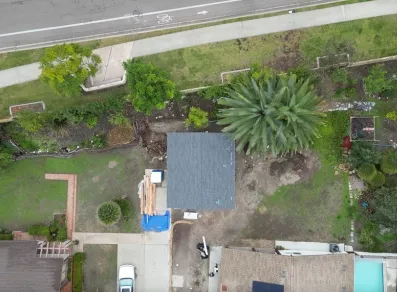Could SB 48 be Florida’s next move on ADUs—after SB 184 fell short?
.webp)
Florida lawmakers are once again turning to accessory dwelling units (ADUs) as a way to expand affordable housing options. A new proposal, Senate Bill 48 (2026), filed by Senator Don Gaetz, incorporates ADU provisions into a broader housing and tenant-screening package now before the Legislature. According to the official text filed with the Florida House, SB 48 would require local governments to adopt ordinances permitting ADUs by the end of 2026 and would place limits on common local restrictions.
This marks the second significant ADU push in as many years. A similar measure, SB 184 (2025), was debated in the last session but failed to advance after concerns about local control and implementation capacity.
A look back: SB 184’s failure
In 2025, lawmakers introduced SB 184, a bill designed to make ADUs a statewide housing solution. The Florida Senate’s staff analysis explained that the bill prohibited local governments from requiring owner-occupancy, adding new parking mandates, or banning rentals of ADUs. It also mandated that jurisdictions update their codes to allow ADUs broadly.
However, legislative records show the measure died in returning messages on June 16, 2025. Analysts noted that cities and counties raised concerns about losing zoning authority and about the administrative challenges of implementing sweeping changes on short notice. The debate underscored a recurring tension in Florida housing policy: state-level mandates versus local government control.
What SB 48 proposes
The newly filed SB 48 (2026) revives the ADU discussion but adjusts the framework. According to the official bill text, the ADU provisions include:
- Local adoption requirement: By December 1, 2026, each local government must adopt an ordinance allowing ADUs in areas zoned for single-family homes.
- Prohibition on restrictive conditions: Local ordinances may not:
- Ban ADU rentals or leases, except to restrict stays under one month.
- Require that the property owner live in the primary dwelling.
- Increase parking requirements when a driveway can already accommodate an additional vehicle.
- Require replacement parking when a garage or carport is converted to an ADU.
- Affordability affidavit: ADU permit applications must include an affidavit affirming that the unit will be rented at affordable rates to households in extremely-low, very-low, low, or moderate-income categories. Approved ADUs would then count toward the affordable-housing goals in local comprehensive plans.
- Taxation and homestead treatment: Rented ADUs would be assessed separately for property taxes, while the existence of an ADU could not be used as the sole reason to deny a homeowner’s homestead exemption.
- Other measures in SB 48: Beyond ADUs, the bill addresses reusable tenant screening reports, density bonuses for land donations toward affordable housing, and directs the Office of Program Policy Analysis and Government Accountability to study mezzanine financing and tiny homes for affordable ownership, with findings due by 2027.
Why SB 48 matters
Florida’s population growth has continued to surge while housing costs climb faster than incomes, a trend highlighted in recent reporting by ClickOrlando (2025). This growing gap between demand and supply has left many families struggling to find affordable options.
Research from the University of Florida’s Shimberg Center for Housing Studies has also warned that the state faces a significant shortage of affordable rental units, particularly for low- and moderate-income households. By requiring local governments to adopt ADU ordinances, SB 48 seeks to add more rental opportunities in established neighborhoods.
Other states, including California, Oregon, and Washington, have already used statewide ADU mandates to boost housing supply and reduce regulatory barriers. Florida’s bill takes inspiration from these models but adapts the approach to the state’s specific housing and zoning landscape.
Lessons from the past
SB 184’s failure in 2025 revealed the difficulty of balancing state housing mandates with local implementation. According to the Florida Senate’s committee analysis, many opponents were not against ADUs themselves but questioned whether the Legislature should dictate land use rules that local governments traditionally control. By embedding ADU provisions in a broader housing package, SB 48 takes a different approach—but the political challenge remains the same: finding consensus on how to expand housing supply without overstepping local authority.
Timeline and Next Steps
- Filed: SB 48 was officially filed with the Florida House under Bill ID 82546.
- Effective date: If passed, the law would take effect July 1, 2026.
- Local deadline: Cities and counties would have until December 1, 2026 to adopt compliant ADU ordinances.
As of now, committees and stakeholders will begin reviewing the proposal.
Bottom line
With Florida’s housing affordability crisis deepening, lawmakers are revisiting ADUs as a scalable solution. SB 48 offers homeowners more flexibility while aiming to tie new units to affordability goals. Whether it succeeds where SB 184 fell short will depend on how effectively state leaders can bring local governments on board.
Quick tip: If you’re considering an ADU in Florida, make sure to follow both state and local requirements closely. While SB 48 (2026) would set a statewide framework, cities and counties will still handle zoning codes, permitting, and inspections. Always check with your local planning department before starting a project to confirm how new rules will apply in your area.
Xavier Rodriguez is the CEO of ADU Geeks, San Diego’s leading ADU consulting and project management firm. In 2024, the company was ranked No. 1 on the San Diego Business Journal’s Fastest Growing Private Companies list in the Small Business category, achieving 594.3% revenue growth.
Related ADU News
Looking for more ADU news? Continue exploring in-depth articles on California accessory dwelling unit laws, policy updates, and development trends.
.webp)
Ready to begin your journey?
Take the first step toward transforming your property and your life. Schedule a consultation with one of our experts and start your ADU journey today.




.svg)
.webp)
